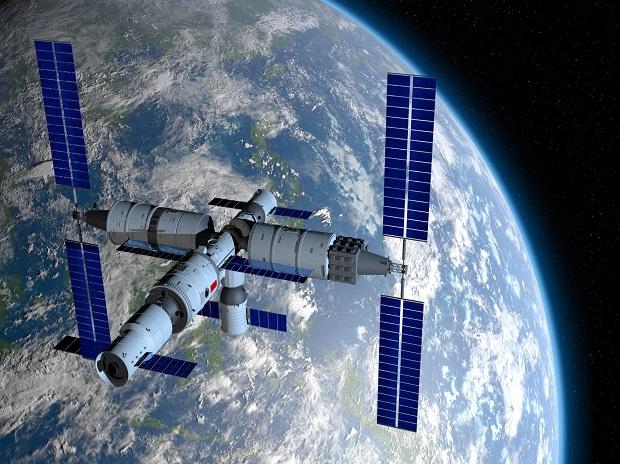China postponed a supply mission to its new space station Thursday for unspecified technical reasons.
The Tianzhou-2 cargo spacecraft was expected to have been launched early Thursday morning. China Manned Space announced the delay on its website but didn't say when the rescheduled launch may occur.
It would be the first mission to head to the main Tianhe module of the space station that was launched on April 29. Another 10 launches are planned to deliver the station's other two modules, various components and supplies, and a three-person crew.
The launch of Tianhe, or Heavenly Harmony, was considered a success although China was criticized for allowing the uncontrolled reentry of part of the rocket that carried it into space.
Usually, discarded rocket stages reenter the atmosphere soon after liftoff, normally over water, and don't go into orbit.
NASA Administrator Sen. Bill Nelson said at the time that China had failed to meet responsible standards regarding space debris.
China's space program has suffered relatively few setbacks since it first put an astronaut into orbit in 2003, although the space station launch was delayed by the failure of an earlier version of the massive Long March 5B rocket.
Earlier this month, China also landed a probe and its accompanying rover on Mars and has begun sending back pictures from the surface of the red planet.
Only the United States has successfully landed and operated a spacecraft on Mars nine times, beginning with the twin Vikings in 1976 and, most recently, with the Perseverance rover in February.
China also recently brought back lunar samples, the first by any country's space program since the 1970s, and also landed a probe and rover on the moon's less explored far side.
China earlier launched two smaller experimental space stations. It has been excluded from the International Space Station largely at the insistence of the United States, which is wary of the secrecy surrounding the Chinese space program and its close military links.
Despite that, China has entered into increasingly close cooperation in space with various European and other countries.
(Only the headline and picture of this report may have been reworked by the Business Standard staff; the rest of the content is auto-generated from a syndicated feed.)
 Dear Reader,
Dear Reader,
Business Standard has always strived hard to provide up-to-date information and commentary on developments that are of interest to you and have wider political and economic implications for the country and the world. Your encouragement and constant feedback on how to improve our offering have only made our resolve and commitment to these ideals stronger. Even during these difficult times arising out of Covid-19, we continue to remain committed to keeping you informed and updated with credible news, authoritative views and incisive commentary on topical issues of relevance.
We, however, have a request.
As we battle the economic impact of the pandemic, we need your support even more, so that we can continue to offer you more quality content. Our subscription model has seen an encouraging response from many of you, who have subscribed to our online content. More subscription to our online content can only help us achieve the goals of offering you even better and more relevant content. We believe in free, fair and credible journalism. Your support through more subscriptions can help us practise the journalism to which we are committed.
Support quality journalism and subscribe to Business Standard.
Digital Editor

RECOMMENDED FOR YOU